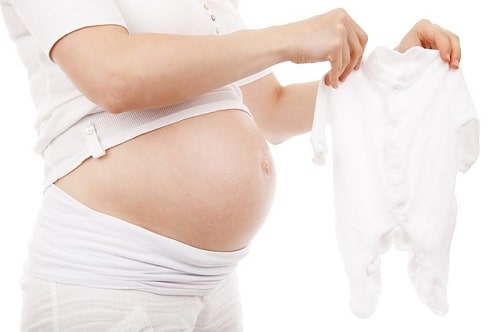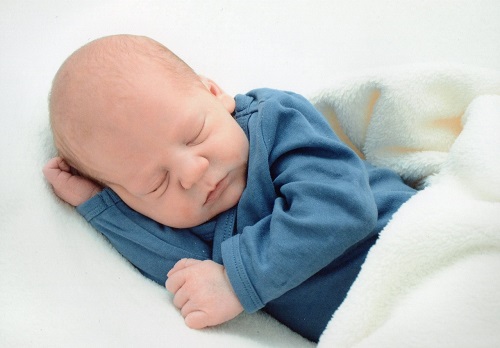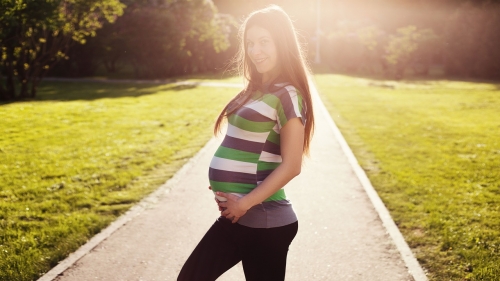The Netherlands practises a calm and informed approach to pregnancy, which is deemed to be a healthy and normal state and not a medical condition which requires intense scrutiny. While this can be frustrating when you are trying to get a referral for something you are seriously worried about, it is also a welcome break from the hysteria that is sometimes attached to this natural life event.Though the media portrays the Netherlands as opposed to pain relief and insistent that all women give birth at home, the reality is far more nuanced. The health care system offers, in fact, a broad range of options to meet the varied expectations and needs of its citizens. The choices available, and the quality of the facilities here, make the Netherlands a very good place to give birth.
Health Insurance
Maternity costs are largely covered by the compulsory basic component (basisverzekering) of Dutch health insurance, although you may need to contribute to the costs of the maternity nurse (kraamverzorgster). If you have just arrived in the Netherlands and have not yet arranged your health insurance, be reassured that everyone is entitled to basic health insurance and pregnant women cannot be turned down or charged more.
Midwife
If you are pregnant, the first thing you need to do is register with a midwife practice (verloskundig centrum or verloskundigenpraktijk). Your first appointment is usually when you are 10-12 weeks pregnant. The midwife will inform your GP (huisarts), so there is no need to make a separate appointment with them. You can find a midwife in your area here.
When you visit the midwife for the first time, they will ask you a few questions about your family history, your home life and your health. This is an opportunity for you to share with them any concerns you have or anything in your background information that you would like them to be aware of.
They will take your blood pressure and may check your uterus. They may also try to hear the heartbeat of the baby. You will be asked for the date of the first day of your last menstrual period, in order to calculate an estimated due date, so it is a good idea to keep a record of this.
Where possible, your midwife will assist you in your labour, whether that is at home or in hospital.
If your pregnancy is deemed to be more complicated (multiple births, complicated previous deliveries, a medical condition etc.) then you may be referred to a health professional at your local hospital and have your appointments there, rather than at your chosen midwifery practice.
Doula
A doula is a trained birthing partner who will support you during the delivery of your baby. Many women in the Netherlands choose to employ a doula, especially if they are planning a home birth. Expect to pay around €1000 for the most comprehensive services. For more information, and a list of practitioners in your area, click here.
Scans and Tests
Ultrasounds at 12 and 20 weeks are included in your insurance. You can book additional scans but you will need to pay for these if they are not a medical necessity.
You have the option of doing a combination test (combinatietest) to identify the likelihood that your baby has Downs, Edwards or Patau syndrome. This involves a blood test between weeks 9 and 14 and a nuchal translucency test (nekplooimeting) between weeks 11 and 14. This test is not normally covered by your health insurance and costs between €100 an €200.

Prenatal Classes
It is common in the Netherlands to enroll in a prenatal class. These sessions, which take place during the third trimester, focus on preparing for the birth and learning relaxation techniques. Some classes are for both parents and some are for women only. They are a great opportunity to meet other expectant parents in your area and often involve a reunion once the babies are born. Your midwife can give you information about local groups. English-speaking groups, such as those organised by ACCESS, are common in the Randstad.
Where to Give Birth
At home
Dutch women have considerable freedom about where they give birth. While many countries see a home birth (thuisbevallen) as an anomalous choice, in the Netherlands around a quarter of births take place at home and the midwives and maternity nurses are used to assisting with them.
Women who wish to avoid the restrictive monitoring devices which hospitals use, and prefer to move freely during their labour, appreciate the unintrusive nature of a home birth. At home, they have more control over their environment and there are fewer interruptions.
You will be advised against a home birth if you are expecting multiples, your baby is in breech, or if there are medical complications. In these cases, it may be difficult to find a midwife who is willing to help you deliver at home.
Some insurance providers include the kraampakket. This is a mandatory homebirth kit including sanitary towels, giant mattress protectors, stretchy underpants, a navel clip and other intriguing items.
In Hospital
Where you give birth may depend on your medical records. If you have a medical indication (medische indicatie) due to your medical history or complications with this pregnancy or previous ones, your insurance will cover your hospital birth and a hospital will be expecting you when it is time to deliver. Without an indication, expect to pay around €300 to give birth in hospital. 17% of all births in the Netherlands are by caesarean delivery.
You can write a birth plan, listing any preferences you have regarding pain relief and medical intervention, and share it with your midwife or gynecologist.
Many hospital rooms have an ensuite bathroom and a sofa bed so your partner can stay with you overnight.
At a Birthing Centre
A birthing centre (geboortecentrum or geboortehotel) offers a half-way house between a home birth and a hospital delivery.
Here you are in a specialist location, often with a birthing pool, and receive expert care in a calm atmosphere. You can stay for several days after the birth and your family and friends can come and visit.
Some centres, like the Bevalcentrum West, offer a home-birth experience but are part of a hospital, making it easy to transfer you in the event of an emergency.
Birthing centres can be expensive, and often charge extra for meals, pain relief, and for your partner to stay. Check with your insurance provider to see how much of the cost they are willing to cover.
Pain Relief
There is a myth that you will be denied pain relief (pijnstilling) if you give birth in the Netherlands.
If you give birth in hospital, it is normal to use pain relief, although you may have to wait for an anaesthetist to become available. However, staff will usually encourage you to labour as much as possible drug-free to avoid slowing down the delivery, and will wait for you to insist on pain relief rather than offer it to you.
Hospitals will sometimes offer you pethidine, an opioid that takes effect within half an hour but can make you drowsy and nauseous.
28.5% (2013) of women in the Netherlands use an epidural (rugprik) during their first delivery. This falls to around 10% for their second child. The epidural is not normally given for the pushing stage. This is so that the mother can feel and use the contractions to assist the birth of her baby.
For home births and births at geboortehotels, there is no access to strong medication to relieve pain. Some birthing centres offer entenox (laughing gas) but it is not widely used in the Netherlands. Some women make use of a tens machine.
Postnatal Care
The maternity nurse (kraamverzorgster) is one of the best things about Dutch maternity care and is of enormous help during those challenging first few days with a new baby. The kraamverzorgster will help change and bathe the baby, support you with breastfeeding, make food for you, take care of any siblings, and undertake some light housework. They will also check your health and the health of the baby and make a note of how you are both progressing.

You are legally entitled to 24 hours of maternity care, which most parents choose to spread over several days. Many mothers choose to pay for additional hours and enlist the help of the kraamverzorgster for the first eight days.
You can find a kraambureau in your area using the Kraamzorgkiezer. It is advisable to register with a Kraambureau before the end of the first trimester.
During the baby’s first few days, a health visitor will visit to do a hearing test and a heel prick test to check your baby’s blood for congenital disorders.
Your baby will begin a vaccination programme between 6-9 weeks old.
Breastfeeding
80% of mothers in the Netherlands breastfeed their babies and almost half do so for more than six months. Women who return to work are legally entitled to time during their working day to express milk or feed their baby for up to nine months after the delivery.
In the Netherlands, there are breastfeeding centres (borstvoedingcentrum) where you can get support and advice about breastfeeding, such as Boezem Vriend in Amsterdam and Borstvoeding en Meer in Utrecht.
Registering the Birth
You are required to register your baby with the municipality within three days of its birth. Parents need to provide identity documents and bring a birth notification from the midwife or hospital which shows the child’s name and the date and time of the birth. Married parents should also show their marriage certificate. The birth registration process is free unless you want extra copies of the birth certificate.
If you and your partner are married then the husband is automatically granted paternity rights. If the couple are unmarried, the father may like to formally acknowledge the child as his prior to the birth. This is particularly important if you want to ensure that the child has the nationality of the father and / or takes his surname.
Should the father choose not to acknowledge the child, they are still required to provide for it.
Maternity Leave
Pregnant women are entitled to 16 weeks’ maternity leave (zwangerschapsverlof) or 18-20 weeks’ leave if they are expecting multiples. They can take leave from six weeks before the due date, or eight to ten weeks before for multiples. If the baby is overdue, mothers are still entitled to ten weeks’ maternity leave during the postnatal period.
Fathers or partners get two days’ paid leave after the baby is born and a further three days’ unpaid leave.
Freelancers who have worked for more than 1225 hours in the year leading up to their leave can also receive paid maternity leave. You can calculate what you are due here.
If you have worked for your employer for more than a year, you are also entitled to unpaid maternity leave.
In the Netherlands, around a quarter of men and three-quarters of women work fewer than 36 hours per week and it is common for new parents to return to work on a part-time basis in order to share the child care. Employers, where possible, will try to accommodate these changes and are accustomed to employees working a four-day week.
Celebrate!
It is traditional to celebrate the birth by offering visitors beschuit (rusk) and muisjes (sprinkles), with blue toppings for a boy, and pink for a girl. Sometimes the hospital will serve you these on the big day, alongside a glass of something fizzy. Proud parents display banners in the windows of their homes with ‘Hoera een jongen / meisje!’ and send little cards with a birth announcement to everyone they know.

